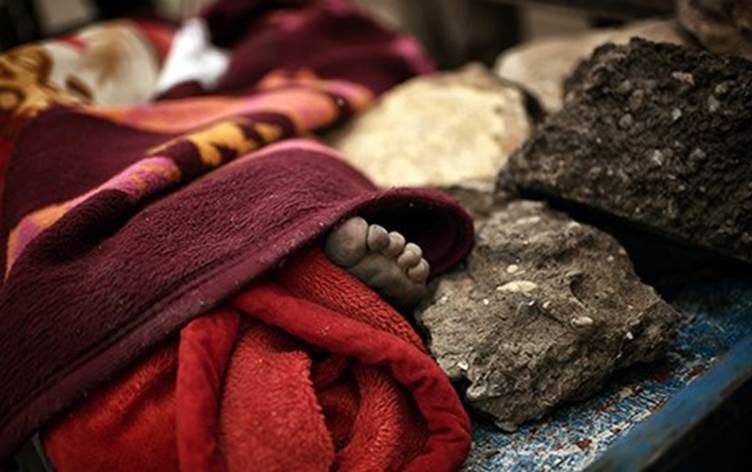ERBIL, Kurdistan Region — Hundreds of civilians trying to flee Mosul were killed by ISIS, with some of their bodies being hung from electrical poles across the city, the Kurdistan Region Security Council (KRSC) announced on Friday.
"According to our CT Department, on Monday and Tuesday, ISIS massacred 140 civilians fleeing to areas controlled by Iraqi forces," tweets from the KRSC stated.
ISIS mass killings, public executions and killings for fleeing have been widely reported.
An Associated Press investigation in August 2016 estimated that between 5,200 and 15,000 people are buried in mass graves in Iraq and Syria.
"Some bodies were later hung on electrical poles in [the] Eslah, Zirai and Tanak neighbourhoods. Others were taken to nearby frontlines," the KRSC wrote.
"According to our CT Department, on Monday and Tuesday, ISIS massacred 140 civilians fleeing to areas controlled by Iraqi forces," tweets from the KRSC stated.
ISIS mass killings, public executions and killings for fleeing have been widely reported.
An Associated Press investigation in August 2016 estimated that between 5,200 and 15,000 people are buried in mass graves in Iraq and Syria.
"Some bodies were later hung on electrical poles in [the] Eslah, Zirai and Tanak neighbourhoods. Others were taken to nearby frontlines," the KRSC wrote.
Eslah is located in western Mosul near the northern area of Hayy Al Uraybi, and Tanak is in far western Mosul near Kahraba al Yarmuk.
Zirai is in eastern Mosul near Sennacherib Palace.
Lise Grande, the United Nation's representative to the Assistance Mission in Iraq, described the choices that face people from Mosul last month.
“Whether you stay or whether you go, there are significant risks to civilians,” Grande said, adding those who chose to stay face extreme risks from crossfire, snipers and explosive hazards; while families who chose to leave are equally at risk: families get separated, ISIS targets them and there is a risk of explosive hazards.



Comments
Rudaw moderates all comments submitted on our website. We welcome comments which are relevant to the article and encourage further discussion about the issues that matter to you. We also welcome constructive criticism about Rudaw.
To be approved for publication, however, your comments must meet our community guidelines.
We will not tolerate the following: profanity, threats, personal attacks, vulgarity, abuse (such as sexism, racism, homophobia or xenophobia), or commercial or personal promotion.
Comments that do not meet our guidelines will be rejected. Comments are not edited – they are either approved or rejected.
Post a comment